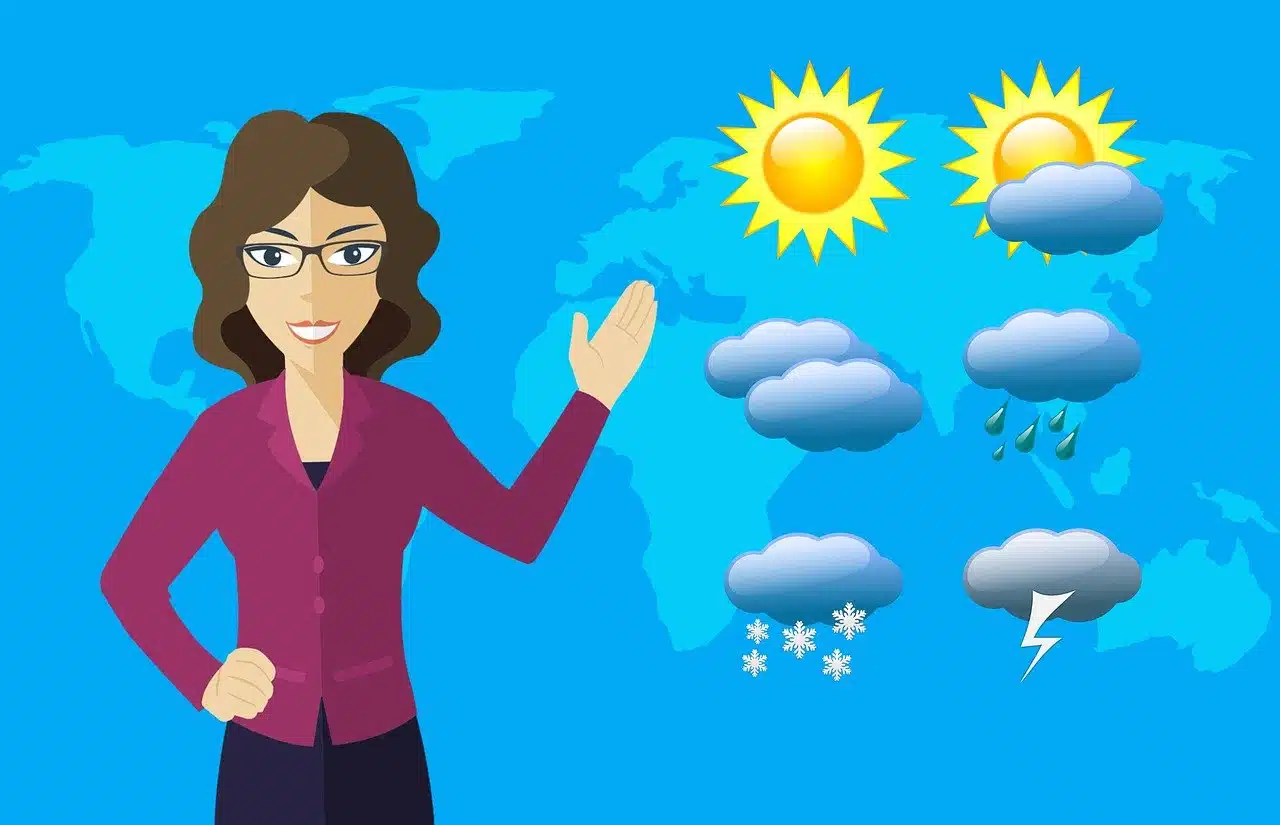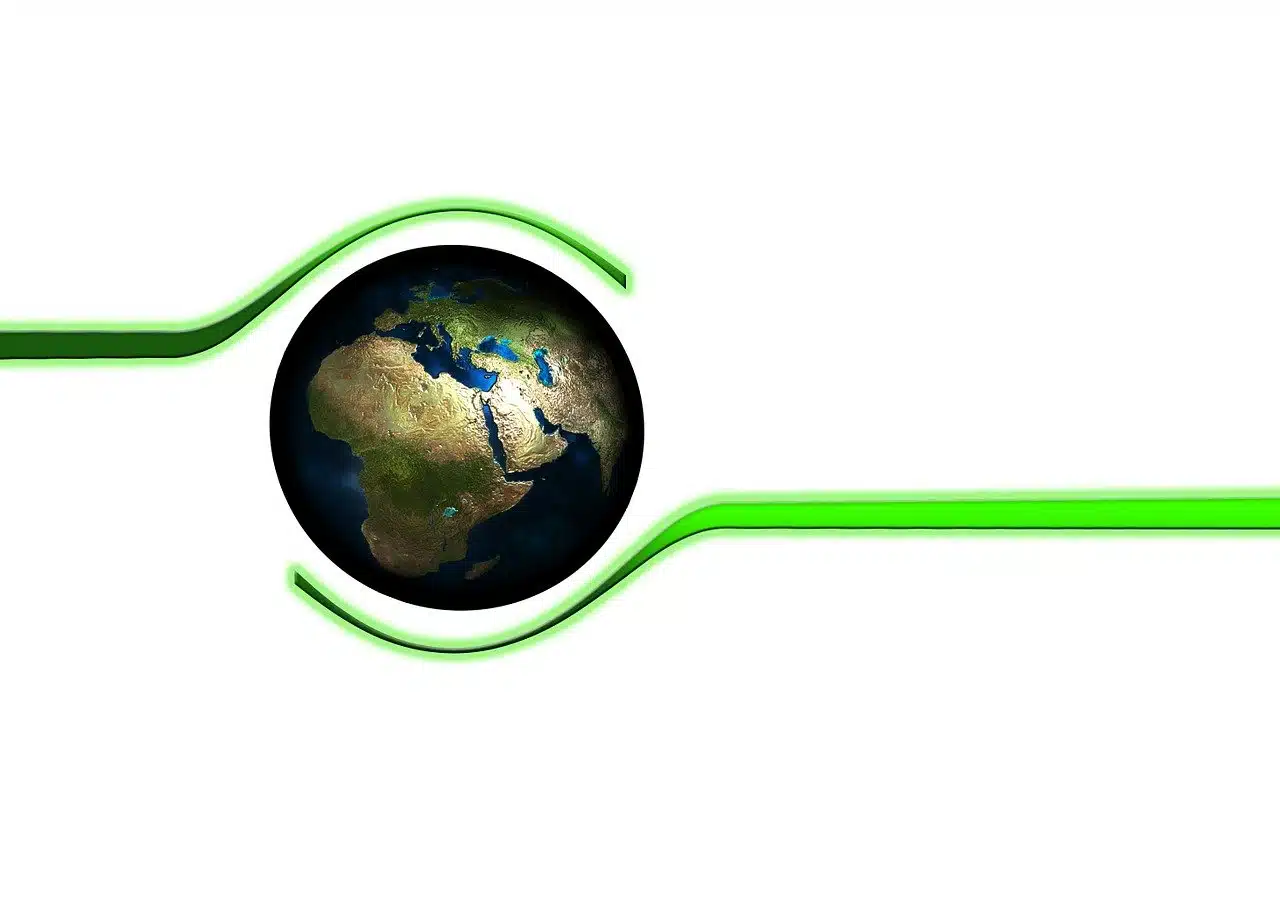
A weather alert is a meteorological resource to warn of the high probability of a severe phenomenon occurring in the short term, such as a strong storm with lightning.
Meteorology is the science focused on the analysis of atmospheric phenomena. It should be remembered that the atmosphere (or atmosphere) is the layer of gases that surrounds our planet and other celestial bodies. These gases are attracted and kept in the area by the force of gravity.
Before moving forward, let's discover the etymological origin of the term. Specifically, meteorology derives from the Greek meteorologia , which is the result of the sum of two lexical components of that language: the word meteoros and the word logia , which can be translated as "study" , "science" or "treaty" .
Meteorology and weather
Meteorology is responsible for studying various phenomena that take place in the atmospheric strata. Weather conditions, for example, are part of its scope of action.
Meteorological weather , in this framework, is the atmospheric state . The so-called weather stations allow data to be collected and analyzed to make predictions, observing how the atmosphere interacts with various systems . Meteorology, in this way, provides support to climatology , which is oriented towards the analysis of average weather conditions over an extended period.
In short, meteorological weather or atmospheric weather , which is usually mentioned simply as weather , refers to the current state of the atmosphere and is studied by meteorology. Climate , for its part, is the set of atmospheric conditions that are recorded over a prolonged period and that are characteristic of a region. That is the object of study of climatology .
Meteorology is responsible for weather forecasting . Thanks to technology , meteorologists are able to anticipate with a certain level of precision what conditions the atmosphere will adopt in the short term, informing the population if there will be precipitation, what temperature is expected, etc. Therefore, it is common for people to consult the forecast with the intention of knowing if in the coming days they will have to deal with rain, hail or snow, if they will be able to enjoy the sun or if the sky is expected to be covered with clouds, for example. .

Thanks to technology, meteorology has managed to improve the reliability of long-term forecasting.
Different branches
No less significant is knowing that meteorology has several branches. Specifically, some of the most important are the following:
- Tropical meteorology , which, as its name indicates, is responsible for studying the meteorological phenomena that occur in the intertropical zone.
- Dynamic meteorology , which analyzes and studies the movements of the atmosphere that take place or are related to the so-called atmospheric dynamics.
- Micrometeorology , whose object of study is the variation of meteorological elements that occur near the Earth and, furthermore, in a small area.
- Synoptic meteorology , which examines large-scale variations in atmospheric conditions on a day-to-day basis.
- Aeronautical meteorology , which focuses on atmospheric phenomena capable of affecting flight safety.
- Marine meteorology , which applies this science to assist sailors.
- Agricultural meteorology , which investigates how meteorological factors affect agricultural activities.
- Mountain meteorology , which reviews the conditions at the elevations of the terrain and how these influence the surrounding regions.
- Space meteorology , which is responsible for the description of conditions in the space environment of our planet.

Bioclimatology includes contributions from meteorology to analyze how the biosphere interacts with the atmosphere.
Aristotle and meteorology
In addition to all of the above, we cannot overlook the fact that Aristotle (384 – 322 BC) is considered the first authority or important figure in meteorology. And this, among other things, proceeded to determine that this was a significant part of the so-called natural philosophy .
Precisely, Aristotle wrote four books that were included in a series titled "Meteorology" and that date from 340 BC. c.
Climate change
Meteorology is one of the sciences that contributes to the study of climate change . This concept refers to the long-term variation in global temperature, a change that sometimes takes place naturally but that in recent decades has been enhanced by human actions.
Climate change, in this sense, is currently associated with global warming . Daily meteorological records are revealing a sustained increase in temperature that is due, according to numerous scientific explanations, to industrial activity and certain behavioral patterns.
Air pollution caused by different industrial processes and the use of fossil fuel vehicles causes the so-called greenhouse effect . When solar radiation reaches the surface, some of it is reflected and returned to space; However, the accumulation of greenhouse gases in the atmosphere prevents this return, retaining the heat.
The increase in temperature leads to the melting of glaciers and, therefore, to a rise in sea level . In this way, the risk of a major flood increases. Global warming also causes desertification, causes extreme weather phenomena and increases the chance of generating a tropical cyclone, among other effects.
Use of devices in meteorology
The use of devices in meteorology is very important for scientists to collect and interpret data. A meteorological station , as indicated above, is a facility equipped with various devices to measure meteorological variables.
These stations have elements such as the barometer (measures atmospheric pressure), the thermometer (for measuring temperature), the rain gauge (records the precipitation that reaches the surface per square meter) and the hygrometer (calculates the level of humidity). ).
Meteorologists also have the information that a meteorological satellite (which helps monitor climate and weather) or a weather radar (which helps to locate precipitation and calculate its trajectories) can provide them. With the information collected, it is possible to develop a climogram (a graphic representation of the climate) or design climate models (they represent those processes that affect the climate system to carry out simulations and projections).
Expert word
Mar Gómez has a degree in Physical Sciences from the Complutense University of Madrid (UCM). He also has a master's degree in Environment and Renewable Energy, a master's degree in Meteorology and Geophysics and a doctorate in Climatology. A regular contributor to radio and TV programs on Telecinco , COPE network, Antena 3 and other media outlets, she is followed by more than 470,000 users on X ( @MarGomezH ).
We consulted this Spanish expert about her work and the future of meteorology:
– How do you prepare yourself, how do you update your knowledge, to be able to achieve optimal professional performance, taking into account that in addition to dedicating yourself to meteorology you develop content about the universe?
Science and the data it provides us are always my basis. Have reliable sources and scientific studies that support the information I am telling. It is a task of documentation, synthesis and communication that must be done in each content I create. In the end, the important thing is to convey reliability and this can only be done with scientifically verified data.
Mar Gomez
– What do you think needs to be done or achieved for meteorology to continue evolving?
Meteorology has evolved a lot in recent years thanks to advances in computing. We have supercomputers that are capable of reproducing future weather conditions and our reliability rate is already very high thanks to powerful tools like these and the large amount of observation data we have. The atmosphere is a chaotic system and as such it will always have a margin of error, however the better resolution we have in the models and the greater amount of observation data, the better these predictions will be.
Mar Gomez
– As a doctor in physical sciences and scientific communicator, what is, in your opinion, the most effective strategy, route or way to make complex topics accessible and easy to understand for a large part of the population?
I believe that communication is essential and specifically good communication consists of transmitting complex concepts to simple ones so that everyone understands them. Social networks, despite everything we find in them, are also a good tool for communicating science and bringing it closer to a young and curious public.
Mar Gomez
– How do you imagine, with what resources, possibilities or knowledge, the scientists of the future?
I imagine them with a great investment in science, which is what we need, a commitment to science because it saves lives, gives us development, innovation... but without resources and with precarious science we are limited.
Mar Gomez
